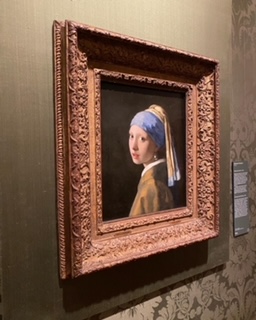
I had a little cry last week. The Guardian website informed me Messi had finally won his World Cup. Doing so in the best final of all time. I didn’t watch this World Cup. I am not writing about that. Regret did not make me cry. It was happiness and relief, for I simply adore Messi.
I grew up a Liverpool fan. Being a Liverpool fan in the 80s was an easy time. Then there was Hillsborough and Sky Sports and a precipitous decline in standards. I fell out of love with football and with Liverpool. I wasn’t playing either, so there wasn’t even that.
I moved back to Kerry in the early 2000s, reduced to living with my parents, but they did have Sky Sports. My elderly parents, my mom a half Scouse Liverpool fan, my dad a hurling fanatic, got me into Barcelona. They never missed a game. I began watching Messi. I started playing again, a friendly seven-a-side. I even remembered my Liverpool devotion.
I’m awful at football, but kicking and controlling a ball does mean I understand what Messi is actually doing. In the same way that because I can do simple arithmetic, I understand Stephen Hawking explaining quantum physics. Or since I can read Shakespeare, I must be able to create smooth similes.
Describing Messi is difficult. I love football. I think it is the most important unimportant thing there is. And because it takes up so much space in my head, I naturally imbue it with a significance that others attach to art or literature.
I was recently introduced to the works of Pierre Bourdieu. He writes about power and the importance of Social Capital in maintaining power structures. How taste is constructed to distinguish between those with power and those without. Football is a sport, but also it is a sport that isn’t rugby. It is for the common folk. Not a game for serious people with serious thoughts doing serious things. It isn’t an art form nor a method for transferring power from one generation to the next.
Football is for grubby people playing out identity rituals with profane chants and fists in car parks. While I didn’t watch the World Cup, I kept abreast through minute-by-minute reports and Messi’s pass against the Dutch was mentioned. I confess I YouTubed it. It took my breath away. A moment of purest creation.
My favourite players over the years have been passers. From Molby to Alonso, it is those who see things, possibilities and movement and have the technical ability to take advantage of that vision to create something out of it. I remember Cruyff describing how when he passed a ball, it was because he saw the pass the player he was giving the ball to should then make.
Is vision followed by creation, not art? Is it the mere artisanal product of a blacksmith or the moving and enhancing experience of a choreographer?
Messi moves me to speak about art, for he gives me joy doing an activity I also participate in. What he does is familiar, though impossible for me to emulate. But not impossible to imagine. I see it. I can deconstruct it.
I had the opportunity this summer to visit the Netherlands. Thanks to their wonderful public transport system, I visited the Vermeer Museum (Delft) and, the next day, see ‘The Girl With The Pearl Earring’ (the Hague). It is difficult to explain my reaction to seeing it for the first time. Witnessing an example of perfection is overwhelming. I had to look away for fear of crying in a roomful of strangers. But when I analysed my feelings, I was not just moved by the beauty and technical application but by cultural significance. The Girl With The Pearl Earring is one of the best things we humans have done. Art is the only thing that says we are not quite like all the other animals.
Great art is distilled humanity married with the technical ability to make real the imagined.
I play football. I have moshed to Nirvana’s music. I have written a novel. I have been to some of the best museums in the world. I have read some of the best novels and watched some of the best plays. Nothing has moved me to stunned incoherent exclamations quite like Messi’s goal against Athletic Bilbao in 2015. No one and nothing has so consistently made me leave my chair and make weird strangled grunting sounds the way Messi has. In his pomp, with the right players around him, he routinely made the impossible possible.
Messi is not unique. He is the paragon, the quintessential and the apogee of an activity that is both the simplest sport and the most complex activity. He may be dismissed as a mere entertainer, for he is certainly that, but does he do those other things that art does? Is he making the experience of being a human that bit better and richer? Does he give pause, leading to reflection on the human experience? Is he culturally significant?
I don’t know to be honest. I lack the education to insist on his artistic bona fides, but I know I see art in him. I know to my dying day I won’t go a week without watching footage of his creative genius. My joy in Messi’s movement may be a product of being working class, but I would not swap position and education for a single minute I have spent watching Messi.




Leave a Reply